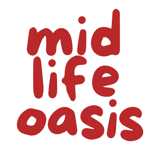CBD: Unlocking the Benefits with Science and Practical Insights
CBD, or cannabidiol, is a non-intoxicating compound gaining popularity for its potential health benefits, especially for middle-aged individuals. It supports sleep, mood, and pain relief without the "high" of THC. This guide explores its uses, including menopause symptom relief, best practices, and alternatives like adaptogens, while highlighting the importance of quality and mindful use.
1/17/20253 min read


1. CBD: The Buzz Behind the Trend
Over the past years, CBD has grown into a household name-from skincare products to gourmet dishes, this has been the compound name that sounds most familiar. The abbreviation for cannabidiol, it is a naturally occurring compound extracted from the cannabis plant. Unlike THC, the psychoactive ingredient in cannabis responsible for getting one "high," CBD is non-intoxicating and has been touted for its health benefits. You may have seen cocktails laced with the extract pop up on trendy restaurant menus or read about wellness products boasting its relaxing effects. But what's behind the hype, and why should middle-aged people care?
2. CBD vs. Cannabis: The Key Differences Explained
CBD works with the body's endocannabinoid system, a complex network of receptors that helps modulate everything from mood and sleep to appetite and pain sensation. By influencing this system, CBD may foster balance and well-being.
Here's where the difference between cannabis, in most of our understandings, starts to become highly relevant. While THC directly engages cannabinoid receptors in the brain, leading to euphoria or changed perception, CBD exerts its effect indirectly on these same receptors, offering a soothing effect without any associated "high." This makes it an attractive choice for those looking to leverage its therapeutic benefits sans any psychoactive response.
3. CBD and Menopause: A Probable Ally
Menopause is a major life transition characterized by hormonal changes, which can be accompanied by symptoms such as hot flashes, mood swings, disturbed sleep, and joint pain. Some studies have suggested that CBD may alleviate some of these symptoms, including:
Sleep Regulation: CBD's anxiolytic action may help in improving sleep through the mitigation of anxiety and promoting relaxation. A study published in The Permanente Journal in 2019 found that over 66% of subjects had improved sleep scores after the first month of CBD use.
Mood Stabilization: CBD interacts with serotonin receptors, thus stabilizing mood; hence, it may provide partial relief from irritability and mood swings common in the course of menopause.
Pain and Inflammation: Due to its anti-inflammatory properties, CBD soothes joint pain and muscle aches for comfort in middle-aged individuals experiencing increased stiffness.
It’s worth noting that while these benefits are promising, CBD is not a cure-all. Side effects, though rare, can include dry mouth, drowsiness, or gastrointestinal discomfort. Additionally, the effectiveness of CBD-infused foods or drinks is often limited due to lower absorption rates compared to oils or tinctures.
4. Unlocking the Full Potential of CBD
If you’re curious about trying CBD, here are some tips for getting started:
Start Small: Start with a low dose, 5-10 mg, and work your way up based on how your body reacts. Everyone's ECS is different, and it may take some time to find the right dose.
Choose Quality Products: A good brand will always offer independent third-party lab testing to ensure the product is pure and the CBD content is accurate. Choose a full-spectrum CBD, which also contains other beneficial cannabinoids and terpenes, or a broad-spectrum CBD if you want to avoid THC altogether.
Choose the Right Form: Oils and tinctures are more bioavailable, meaning they'll enter the bloodstream quicker. Topicals are ideal for specific relief. Edibles, in the form of gummies or beverages, are discreet and easy, yet take a bit longer to get into your system.
Timing is Everything: Take the CBD when it best fits with your goals-be that winding down at night or overcoming midday stress.
5. Beyond CBD: Exploring Other Avenues of Wellness
While CBD is a natural way to approach wellness, other ways can provide comparable benefits to it:
Adaptogenic Herbs: Ashwagandha and rhodiola offer the possibility of better energy levels and regulated stress.
Omega-3 Fatty Acids: Present in fish oil or flaxseed, these help maintain brain health and reduce inflammation.
Mindfulness Practices: The regular use of meditation, yoga, or breathing exercises can alleviate stress and improve sleep without supplements.
Lifestyle Changes: Eating properly, regular exercise, and good sleeping habits remain the fundamental building blocks of good health.
6. Embark on the Journey: Knowledge Is Power
As we get into middle age, maybe now would be a really good time to learn about some of the new tools that could help us live healthier and more active lifestyles. One promising avenue that offers relief for many of the common challenges people face is CBD, supported by growing scientific understanding. Although it may not be right for everyone, an open-minded willingness to try can lead to life-changing benefits. After all, staying informed and open-minded is a hallmark of graceful aging.
